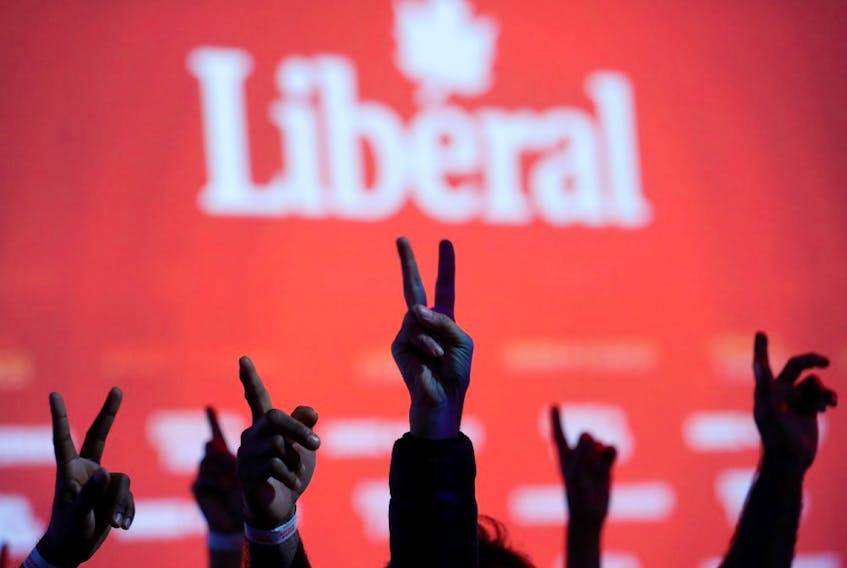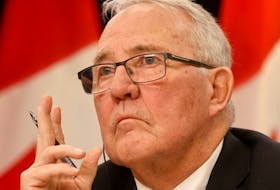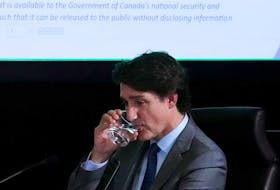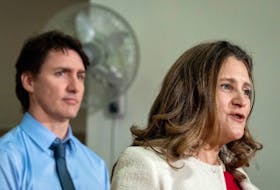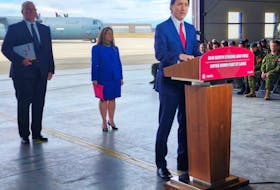Can’t they both lose? I asked, irritably, in my last column. As it turned out, they both did. Never before have both major parties taken such a small share of the vote. Never before, in my memory, have both declined steadily and together throughout a campaign. Their platforms landed with the same dull thuds, their leaders failed to impress in roughly equal measure.
The Liberals, then, did not so much win this election as lose it less. They gave up roughly 30 seats, yielded half a dozen points in the popular vote — but not to the Tories, whose vote remained as steady, or as inert, as ever. Rather, it was to the benefit of the other parties on the left: the Greens, the resurgent NDP and especially the Bloc Québécois. It was left-of-centre voters, not those in the centre or right, that administered this rebuke — enough to humble the Liberals but not to remove them from power.
The story of this election is likewise not of any surge in support for the Conservatives, but of the restlessness and rootlessness of voters on the left, whose partisan attachments would seem as permanent as a breeze. In 2015, the Liberals had rounded up just enough of the progressive vote to win a majority, on the strength of an ambitious, left-leaning platform and an idealistic young leader. But by 2019 much of the platform, especially the signature electoral reform promise, had been abandoned, and the leader was neither so young any more nor so idealistic.
A replay of the same appeal to progressive voters’ hopes was not, therefore, in the cards. Instead, the Liberals returned to an older strategy, that of frightening the pants off them, with tales of the horrors that would follow if any of them were so foolish as to stray into the Green or NDP camp. It didn’t work. Next to the extravagant bidding war that went on between the NDP and the Greens, the Liberal platform looked timid and derivative, while the Tories, under the cautious, plodding leadership of Andrew Scheer, failed to live up to their terrifying billing.
Still, the Liberals will remain in government, with a more solid grip on power than they might have expected even a week ago. They have been humbled, as has Justin Trudeau, reduced from majority to minority in just four years — much as his father was in 1972 — but they have a strong enough plurality that they can probably govern as governments traditionally have in minority parliaments in Canada, by finding votes where they need them, one piece of legislation at a time rather than by any formal agreements with another party or parties.
By now we should be used to this: this will be the 10th minority Parliament to result from the past 21 elections; the fourth in the past six. But this one comes with an unusual wild card: the SNC-Lavalin affair, and its unresolved aftermath. Had the Liberals maintained their majority, they might have hoped to keep some sort of a lid on it, give or take an RCMP investigation. But without a majority, the opposition will now control all the committees, and can call whatever witnesses they like.

That return to closer legislative scrutiny of the executive is a welcome result of this election. More worrisome are the consequences for the public treasury. In majority the Liberals had raised spending to previous unheard of levels; what they might be tempted to offer to hold onto power in a minority, especially given the promises in the NDP platform, should be cause for profound concern — not least to many Liberals, for the opportunity it might provide the Conservatives to occupy the centre.
That’s if the Conservatives have the wit to take it. The other lesson from this election, alongside the divisions on the left, is the limitations of the Conservatives’ perennial base-first strategy. Election after election, the Conservatives come in with roughly the same level of support; if they need not fear much in the way of erosion, neither do they have much room to grow. That was solidified and entrenched with the decision to oppose carbon pricing. It guarantees they will continue to win nearly all of the seats in Alberta, with astronomic margins. But it also puts a ceiling on their support in other parts of the country where races are tighter and more seats are to be won or lost.
That’s not just a geographic division. The Tories find themselves equally blocked in their ability to appeal to younger voters, to the university-educated, to women. The climate change debate is just one example of an issue where the party has passed on a chance to expand its base in favour of appealing to its existing supporters. This was a winnable election for them, with a wounded Justin Trudeau and a divided left. That they flubbed it will bring calls for a change of leader. It should also prompt calls for a change of approach.
As for the other parties, the NDP can take solace in having exceeded expectations, but little else: though they emerged as “winners” from the campaign, they took fewer seats and a smaller share of the vote than in the “defeat” of 2015. The Greens, conversely, will be disappointed they did not take more seats, given the momentum with which they entered the campaign. But they doubled their previous best performance in terms of the popular vote.
The most unambiguous winners were the Bloc, who like the NDP had been all but given up for dead before the election. They have returned as a force in Parliament, with their best performance in more than a decade. The future of the federation suddenly looks gloomier than it has for some time, not only with the Bloc poised to make mischief, but with the disaffection that is bound to arise in the resource-producing West. Bad enough to have the pipeline-ambiguous Liberals returned to power, but with three parties to their left pushing them to block all further pipeline construction, the West is set to be unhappier than ever.
How unhappy? They might have even preferred a Liberal majority.
Copyright Postmedia Network Inc., 2019

